Liz Truss clings to power as chaos in Westminster escalates
British Prime Minister Liz Truss battled to retain her grip on power on Thursday, a day after a second top minister quit and rowing and jostling broke out among her lawmakers in parliament in a dramatic breakdown of unity and discipline.
Only six weeks into the job, Truss has been forced to abandon almost all of her policy program after it triggered a bond market rout and a collapse of her approval ratings and those of her Conservative Party.
In just six days she has lost two of the four most senior ministers in government, sat expressionless in parliament as her new finance minister ripped up her economic plans and faced howls of laughter as she tried to defend her record.
"We can't go on like this," one Conservative lawmaker told Reuters late on Wednesday, of the chaotic scenes in parliament.
The sight of yet another unpopular prime minister clinging to power underscores just how volatile British politics has become since the 2016 vote to leave the European Union unleashed a battle for the direction of the country.
Truss became Britain's fourth prime minister in six years after being elected to lead the Conservative Party by its members, not the broader electorate, and with support from only around a third of the party's lawmakers. She promised tax cuts funded by borrowing, deregulation and a sharp shift to the right on cultural and social issues.
Her abrupt loss of authority comes as the economy heads into recession and her new finance minister Jeremy Hunt races to find tens of billions of pounds of spending cuts to reassure investors who took fright at Truss's policy proposals.
Government borrowing costs, while lower than they were at the height of the crisis last week, remain elevated as investors question who is in charge and whether Hunt will be able to rebuild confidence in Britain's once-sound economic reputation.
Crispin Blunt, a Conservative lawmaker for 25 years, told Reuters the situation was so grave that his colleagues needed to allow one person with experience to take control.
"Personal considerations and ambition now must be set aside," he said, adding that he would back Hunt as leader.
Simon Hoare, in parliament for seven years, said Thursday and Friday were crunch days for the government. "I have never known ... a growing sense of pessimism in all wings of the Tory Party," he said.
Buffeted by events
Truss has been fighting for her political survival since Sept. 23 when her then-finance minister and close ally, Kwasi Kwarteng, announced a "mini-budget" of vast, unfunded tax cuts that sent shockwaves through financial markets.
She fired Kwarteng on Friday and her interior minister, Suella Braverman, resigned on Wednesday.
With opinion polls showing the Conservatives face a wipeout at the next election, some lawmakers say Truss should go so they can try to rebuild their brand. Others seem to have given up.
"Sadly, it seems we must change leader BUT even if the angel Gabriel now takes over, the Parliamentary Party has to urgently rediscover discipline, mutual respect and teamwork if we are to (i) govern the UK well and (ii) avoid slaughter at the next election," lawmaker Gary Streeter said on Twitter.
With inflation at a 40-year high and mortgage rates jumping, the scenes of lawmakers warring and scheming in parliament risk deepening anger among voters who are preparing for a tough winter of rising food and energy costs.
Wednesday's parliamentary drama was sparked by confusion over whether a vote on fracking was being used as a confidence vote in the government. Opposition lawmakers said some of Truss's Conservatives were "manhandled" to make them vote with the government.
With lawmakers lining up to denounce the state of affairs in the country, the government could not say for several hours whether the politician in charge of party discipline, or chief whip, had quit or not.
In a sign of the chaos, Truss's Downing Street office issued a statement at 1:33 am (0033 GMT) to say the prime minister had "full confidence" in the chief whip and her deputy.
It also said that any lawmaker who abstained on the vote to allow fracking could "expect proportionate disciplinary action". Voting results show that more than 30 Conservative lawmakers did not vote, including those who were away or unwell.
Transport minister Anne-Marie Trevelyan, sent out to talk to broadcasters and radio stations on Thursday morning, was asked if Truss would lead the Conservative Party into the next election, expected in 2024.
"At the moment that is still the case," she said.
(Source: Reuters)

UK veterans break silence on ‘barbaric’ killings in Iraq, Afghanistan

Met Police ban Jewish anti-Zionist group

UK imposes ‘largest ever’ sanctions package on Russia, hits 100 Russian tankers
Top general: Iranian Army, IRGC naval units at peak of combat readiness
Hamas releases Israeli-US soldier, Trump looks forward to more captives
Pezeshkian: Enhanced Iran-Uzbekistan ties will promote regional peace, security
Iran reports 4.6% surge in mild steel output in April
VIDEO | Press TV's news headlines
VIDEO | Red Crescent warns humanitarian workers under fire in Palestine
Jolani proposes Trump Tower in Damascus, peace with Israel for sanctions relief: Report
UK veterans break silence on ‘barbaric’ killings in Iraq, Afghanistan


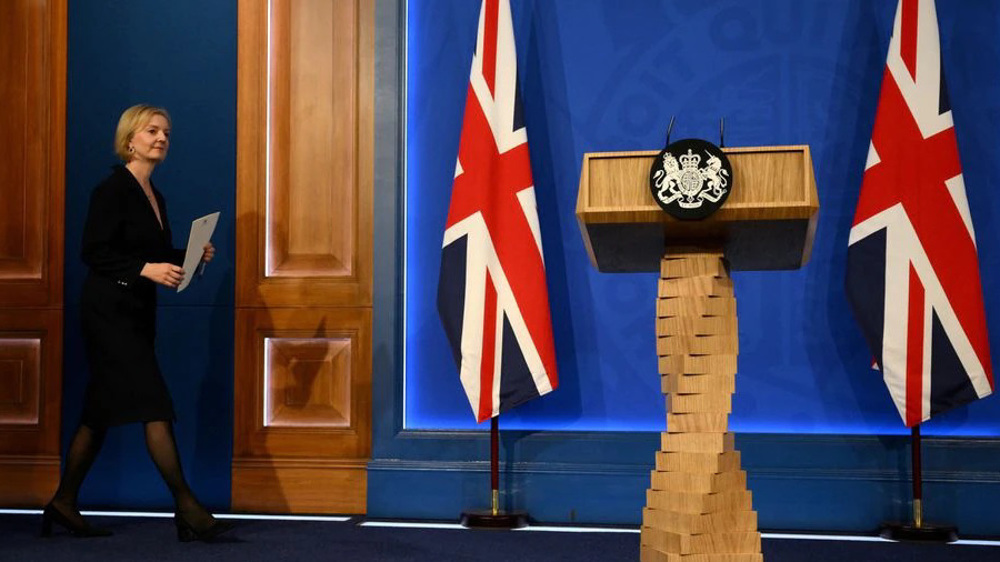
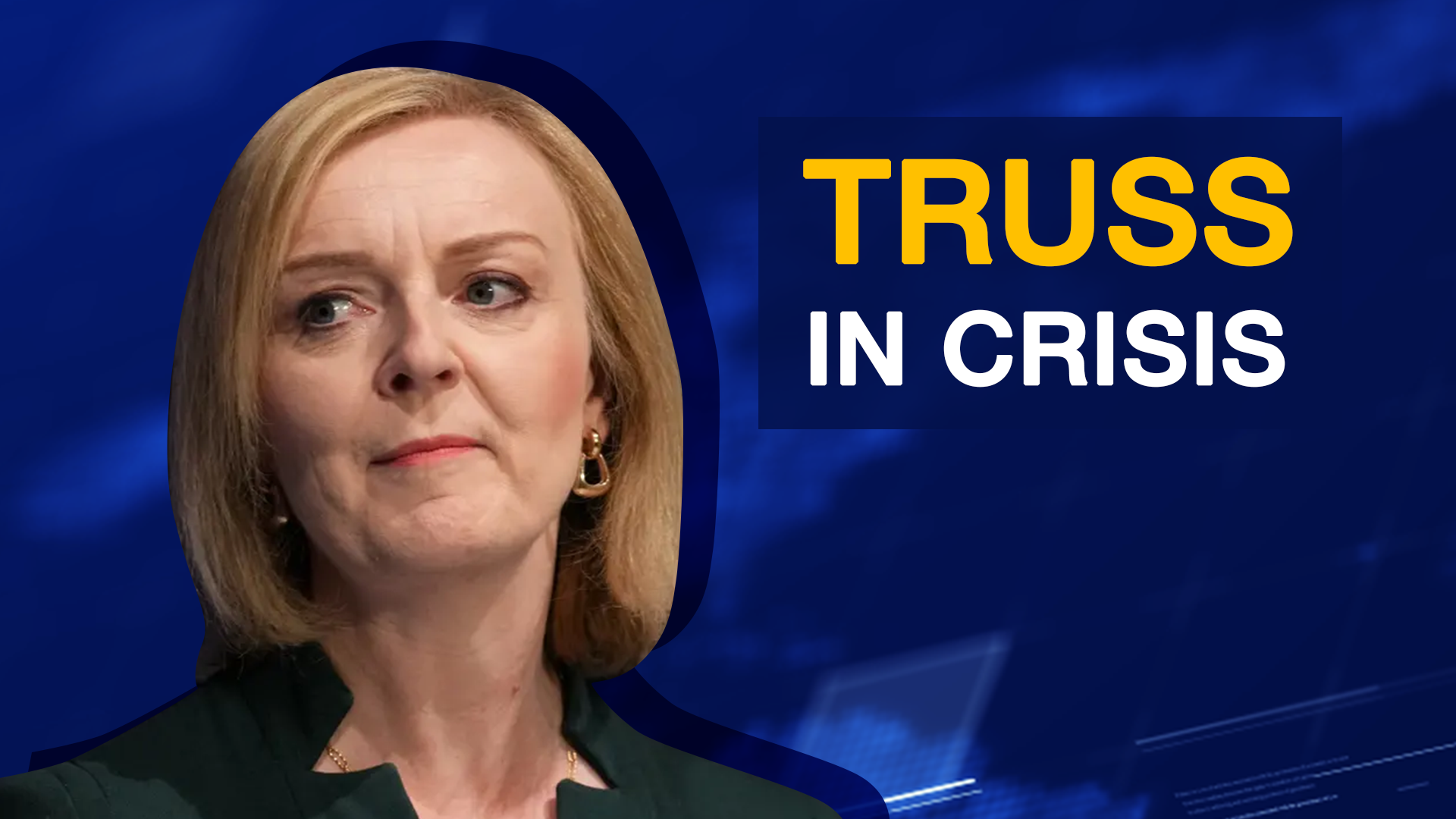




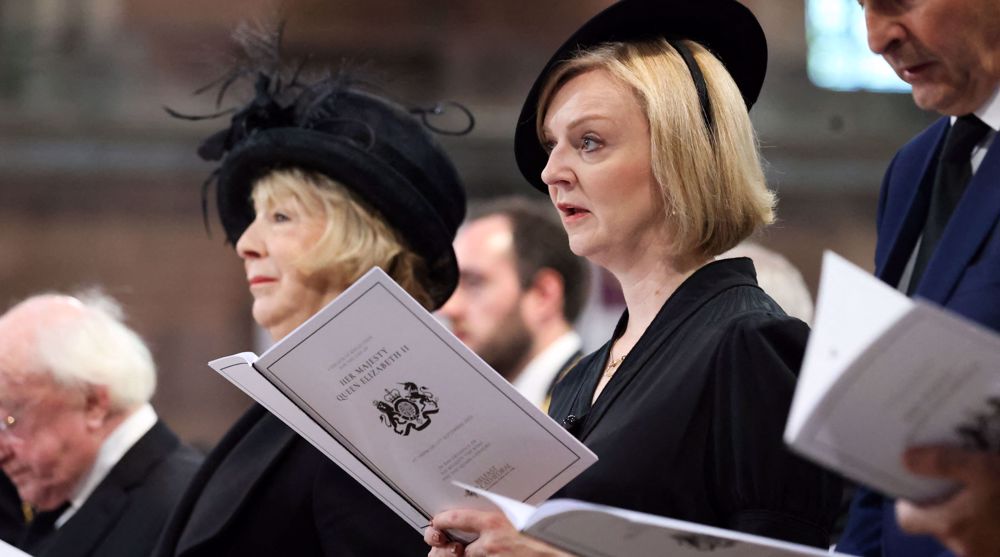
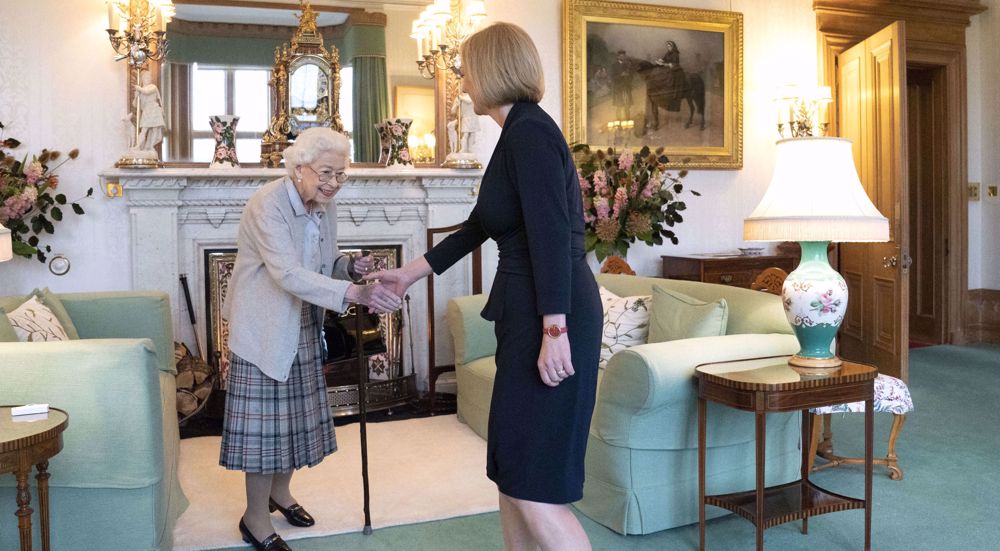

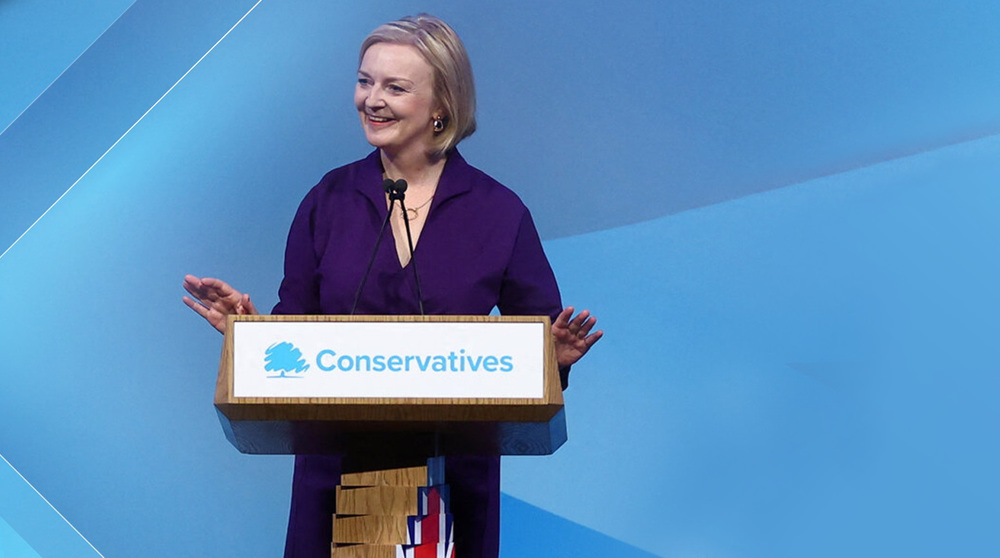
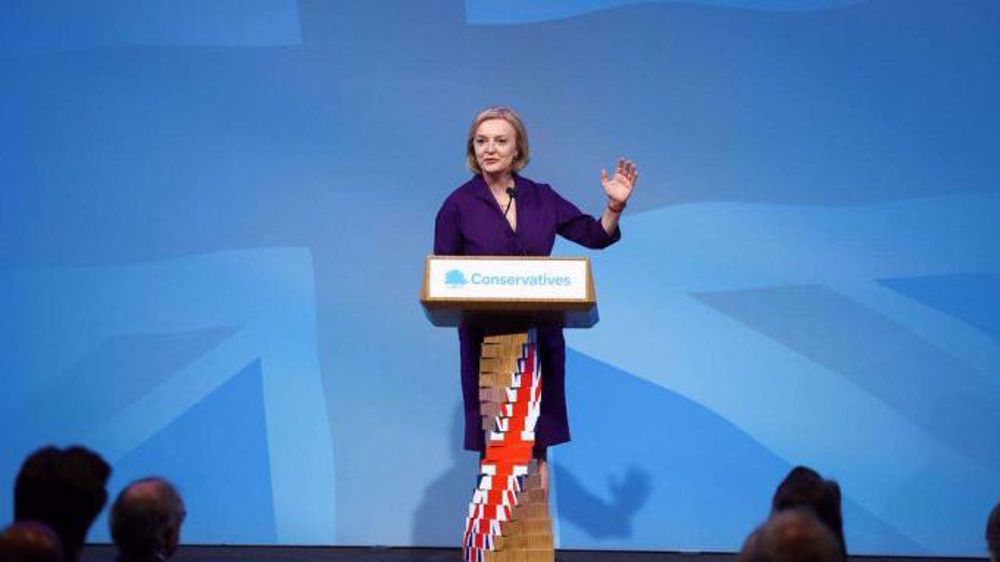

 This makes it easy to access the Press TV website
This makes it easy to access the Press TV website